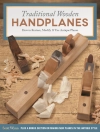In this seminal work, ‘Common Sense in the Household: A Manual of Practical Housewifery, ‘ Marion Harland navigates the complexities of domestic life with a blend of pragmatism and moral philosophy. Harland’s literary style is both accessible and instructive, employing clear prose and detailed illustrations to guide readers through various aspects of household management. Contextually situated in the late 19th century, this manual emerges from a period when domestic responsibilities were increasingly scrutinized, reflecting societal shifts towards modernity yet remaining anchored in traditional values. Harland emphasizes practical wisdom in cooking, cleaning, and child-rearing, making the book a foundational text in the genre of domestic literature that seeks to empower women in their roles as homemakers. Marion Harland, born Mary Virginia Terhune, was a prominent author and journalist whose own experiences as a housewife and mother deeply informed her writing. An advocate for women’s autonomy, her roles in literary circles and engagements with social issues of her time influenced her views on domesticity. Harland’s personal struggles and triumphs in a rapidly evolving society fueled her commitment to providing women with the knowledge and skills necessary to manage their households efficiently and effectively. ‘Common Sense in the Household’ is a vital read for anyone interested in the historical role of women in society, as well as those seeking practical guidance in modern domesticity. Harland’s insights are not merely relics of the past; they resonate today as they emphasize the importance of common sense, resourcefulness, and the dignity of domestic work. This book is recommended for both scholars and general readers who value the intersection of historical context and practical wisdom in household management.
Sobre el autor
Marion Harland is the pen name of Mary Virginia Terhune (née Hawes), an accomplished American author born on December 21, 1830, in Amelia County, Virginia. A pioneering figure in domestic literature, Harland began her prolific writing career with the publication of ‘Alone’ in 1854, which enjoyed immense popularity and was followed by a series of successful novels. Venturing beyond fiction, she made significant contributions to the genre of domestic manuals with titles like ‘Common Sense in the Household: A Manual of Practical Housewifery’ (1871), lauded for its mix of recipes, household advice, and wit, and which secured her reputation as an authority on domestic management and cookery. Harland’s literary style often combined practicality with moral instruction, reflecting the Victorian ideals of womanhood and domesticity. Her work demonstrated a keen understanding of the contemporary middle-class household, making her a household name and a source of guidance for many American women. Besides her homemaking manuals, Harland’s body of work includes over 50 volumes spanning novels, cookbooks, and advice literature, contributing to the cultural landscape of 19th-century America. Her works are celebrated for offering insight into the period’s social norms and have remained relevant references in the study of American domestic history. Harland continued to write and inspire until her passing on June 3, 1922.












